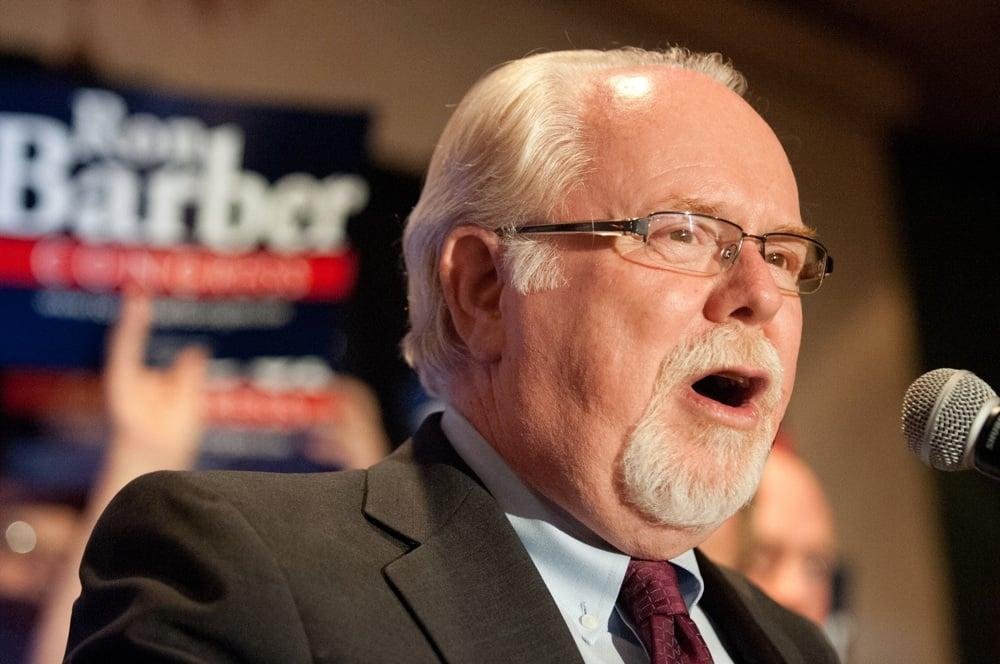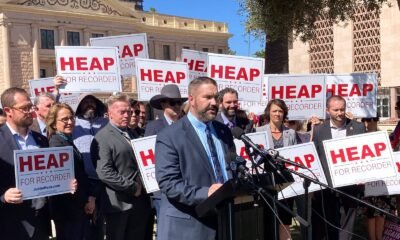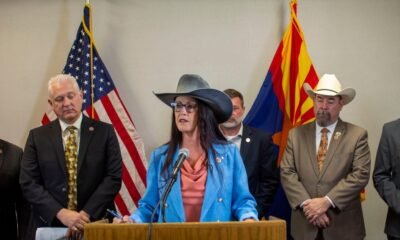arizona
Rising Tension: Arizona Braces for Political Violence Ahead of Election

Concerns about political violence surrounding the upcoming presidential election are increasingly prevalent among voters in Arizona. A recent online survey of 900 Arizonans conducted in May revealed that 70% of respondents express worry over potential violence linked to the elections, according to the Arizona Democracy Resilience Network (ADRN).
This group, formed in 2021 with backing from the Carter Center, is focused on ensuring secure and fair elections in the state. Their objectives include countering false narratives about elections, reducing the likelihood of political violence, and rebuilding trust in the electoral process. Similar organizations are emerging in states such as Georgia, Florida, and Michigan.
Ron Barber, a former Congressman from Southern Arizona and co-chair of the ADRN, emphasized that the need for their work intensified following the January 6 insurrection. “We’re working to restore trust and credibility in election processes, which have been damaged by damaging rhetoric,” he articulated, alluding to the political climate stirred by the Trump campaign.
Alongside Barber is Don Henninger, a Republican former editor at the Arizona Republic, who joined the group because of his commitment to safeguarding democracy. “How could I say no?” Henninger questioned, highlighting the high stakes involved.
The ADRN operates on three foundational principles: truth in politics, peaceful civic engagement, and the support of electoral democracy. The aforementioned survey also indicated that a significant majority of participants—83%—do not endorse political violence, with 74% expressing confidence in the state’s electoral integrity.
Despite the optimistic findings, 26% of those surveyed remain skeptical about the fairness of elections, a particularly concerning statistic amid ongoing allegations from figures like former President Donald Trump and GOP candidate Kari Lake, who claim that election results were manipulated.
Such unfounded theories have proliferated online, including exaggerated claims about ballot tampering and election rigging. Even as these accusations have been dismissed in court, they contribute to a toxic environment that has led the Arizona Senate to pursue a controversial audit of the 2020 election results.
Henninger noted the alarming rhetoric emerging from political figures, drawing attention to Lake’s provocative comment encouraging supporters to be armed during a campaign event. Such statements have the potential to incite real-world violence, underscoring the urgency of the ADRN’s mission.
The atmosphere has triggered the resignation of many seasoned election officials across Arizona. Barber pointed out the significant loss of experienced personnel, emphasizing that 12 out of 15 counties have witnessed departures since the 2022 elections, resulting in a detrimental loss of institutional knowledge.
Furthermore, recent events in counties such as Cochise and Mohave illustrate a troubling reluctance among some officials to certify election results. This hesitation, spurred by legal threats and public scrutiny, raises alarm bells about election integrity.
State Attorney General Kris Mayes has expressed strong condemnation of actions undermining democracy, citing the indictment of individuals involved in interfering with election processes. However, widespread mistrust remains, particularly fueled by anecdotal accounts of irregularities perceived by some Republican supervisors.
Henninger asserts that incidents like these erode public confidence in elections, making it challenging to restore faith once lost. “Trust is something we’ve taken for granted, but now, prominent figures are sowing doubt,” he said. Henninger stressed the importance of distinguishing between fact and fiction in a media landscape rife with misinformation.
Looking ahead to the election, he is cautiously optimistic about the absence of pre-election violence but expresses concern over potential fallout post-election, particularly connected to the complexity of the ballot design. “Mistakes are inevitable, and that could fuel unnecessary conspiracy theories,” Henninger warned, highlighting the fragile state of trust in the electoral system.


















